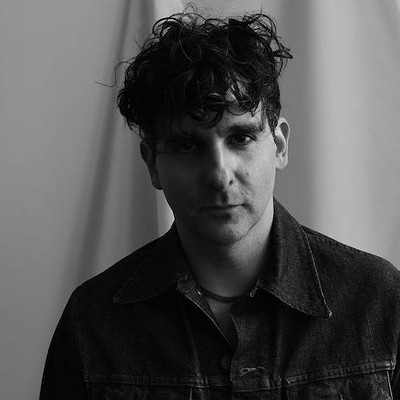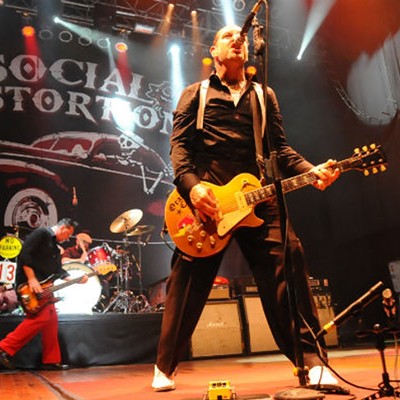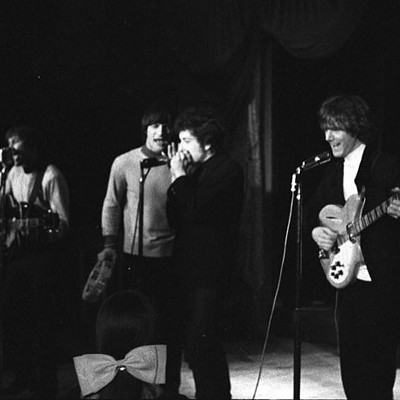There is no artist I have enjoyed watching grow in Houston more than James Caronna, and his latest album, Tell My Father, is proof that the road to fine music runs straight through Hell. If you’ve missed him before, Caronna is a dude who started out writing pleasant but fairly innocuous and forgettable acoustic pop tunes half a decade ago. There was always talent there, but no real edge. Then a few years back he had a very public split with his religion and much of his conservative circle of family and friends. His songwriting took a darker, angrier turn for the better; for my money, he’s one of the better practitioners of bleak Americana.
Caronna told me that the ten tracks on Tell My Father were “tracked live, full band, after two bottles and one full handle of George Dickle eight-year sour mash, which is thanked in the liner notes.” Recording took place at Red Tree Studio, which is arguably the best place in the city if you want to punch God in the eye with an acoustic guitar. The record is definitely raw, and has a very informal tone. You really feel like you’re right in the room of an impromptu jam session.
What I like the most about Caronna’s modern musical output is how well it bleeds. The first part of Tell My Father is a trifecta of loud but sad wails into the night. “Death," “Ten Years” and “If You Come Back” are screaming laments, slightly slurred by alcohol and burning hot on a broken heart. The rhythms are solid honky-tonk and Caronna has the vocal chops to throw out verses like a boomerang that whistles out into the air and comes back.
In many ways, the record kind of never recovers after that. The seven songs that come after slow considerably and are more maudlin than angry. There’s far more sadness, almost like the wave of guilt you feel after a bad fight with someone you love. Many of these feature Caronna solo or with only occasional flourishes on the violin. They also reveal one of Caronna’s problems as a songwriter, in that on records he tends to write one song and repeat it over and over. Nevertheless, I applaud the consistency of his product. If you like that song you’ll like the album, but maybe a less hectic and drunken recording style might have led to a little more variety here.
But then there’s “Losing Hope,” which is truly a song for the now.
I was listening to Tell My Father when I heard about last week's shooting in Charleston. On my first listen through I thought it was pedestrian. A little pretentious even. It’s a soft manifesto, Caronna’s State of the Union on our country and how badly we keep on fucking it up. It’s the sort of thing you listen to in a moment of privilege, and you just sigh and roll your eyes at yet another guy trying to save the world with a song.
Then something like Charleston happens, and in its wake you get the clamoring voices who scream and cry about how you can’t take the Confederate flag down and racism is over, and maybe if those poor people had had guns next to their Bibles they’d still be alive. That happens, and that’s what “Losing Hope” is about. Verses like…
And the Christians are all too busy trying to get to Heaven
To notice all the Hell around them and growing
‘Cause we’ve got all the ingredients we could ever need
Just too much goddamn apathy
It’s a destruction song. It’s completely bald and shies away from nothing. Caronna’s tone is bitter and hurt, singing what so many of us are saying; things are broken, but they’ve been broken for years and clearly we just don’t care to fix them. I don’t think I’ve ever heard a more perfect song for a moment in history as I was living it. It’s worth the price of already pretty damned good record all by itself.
Tell My Father is available now.






